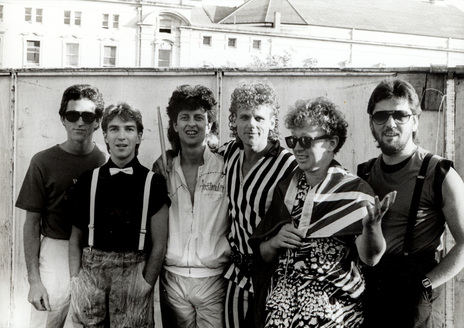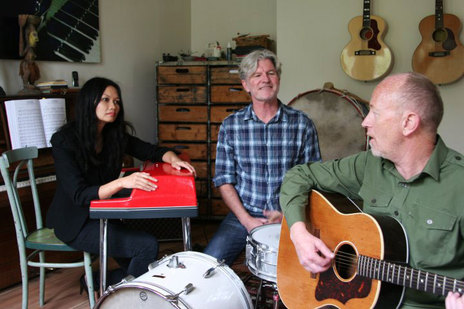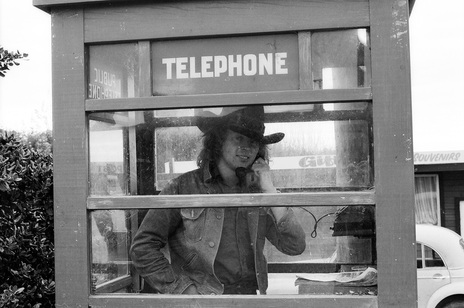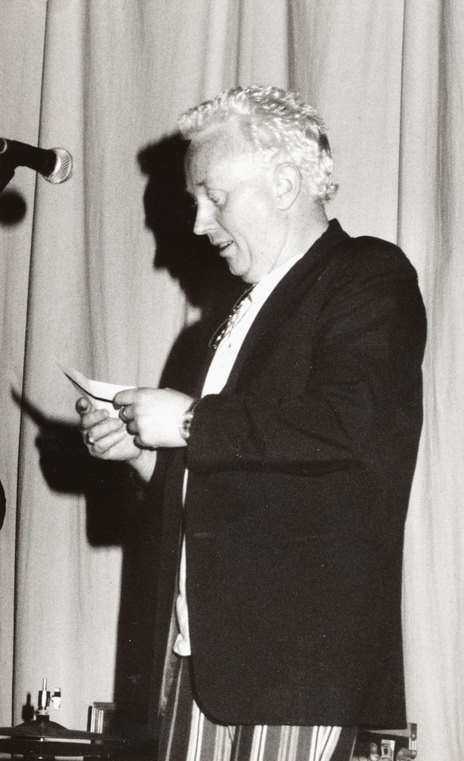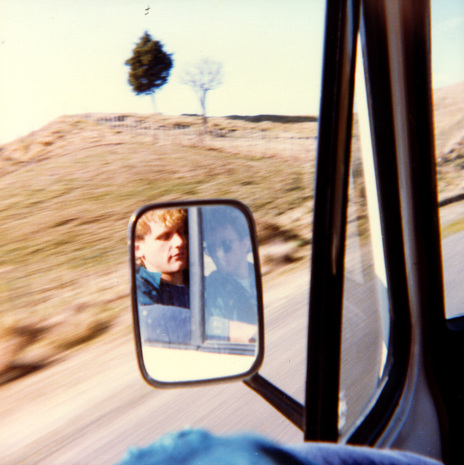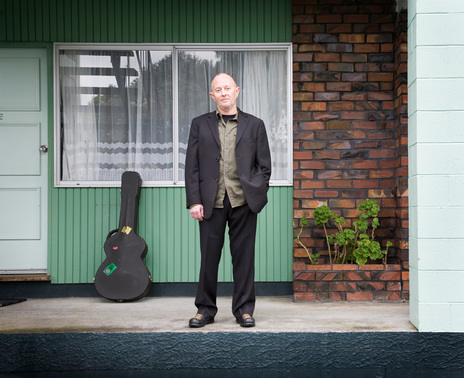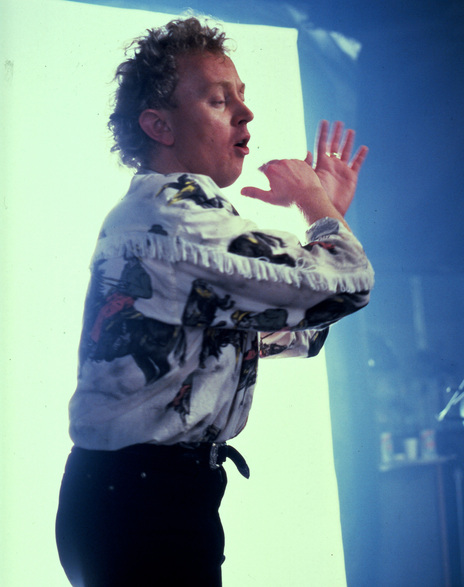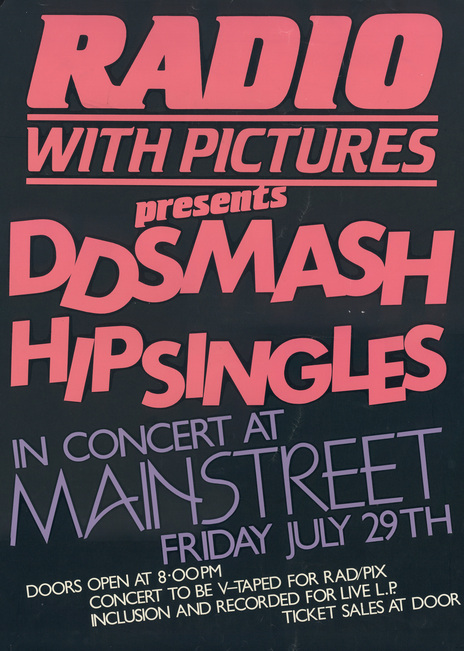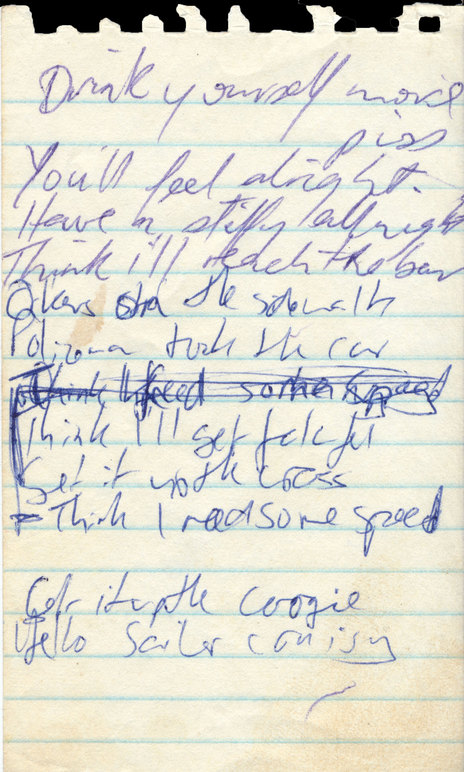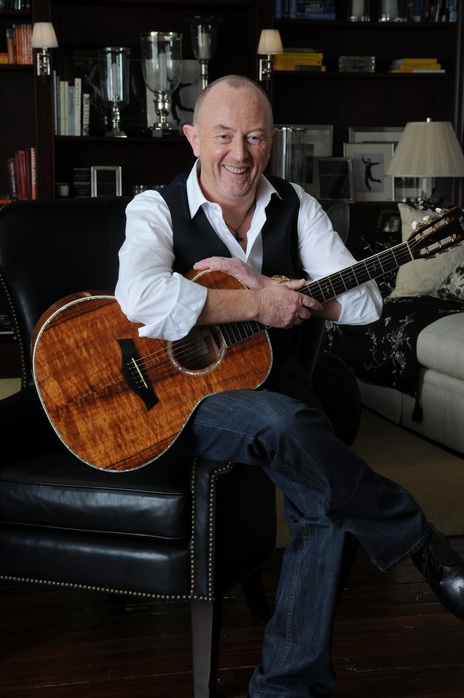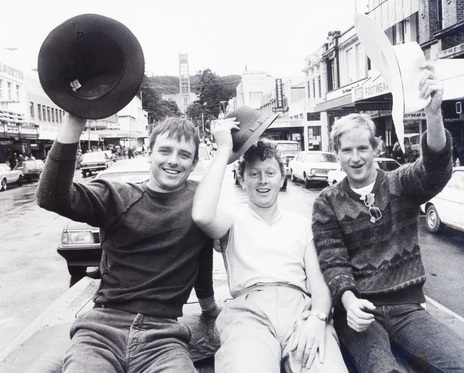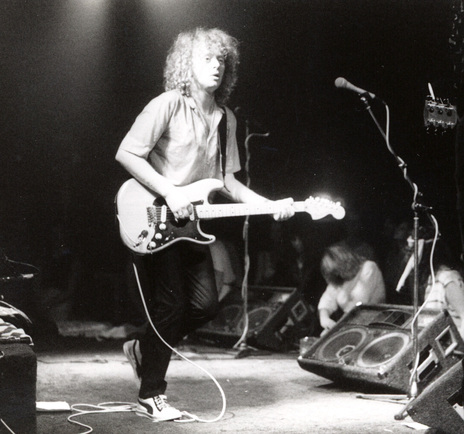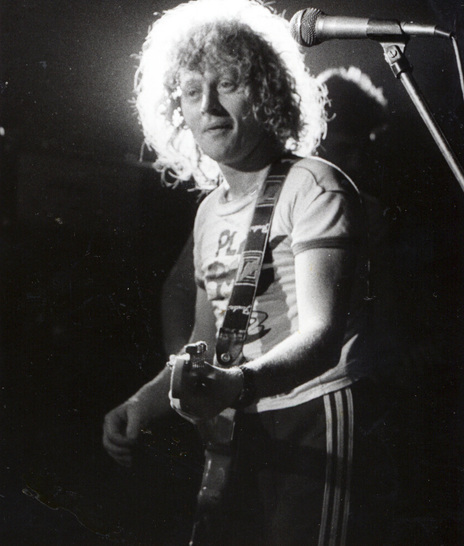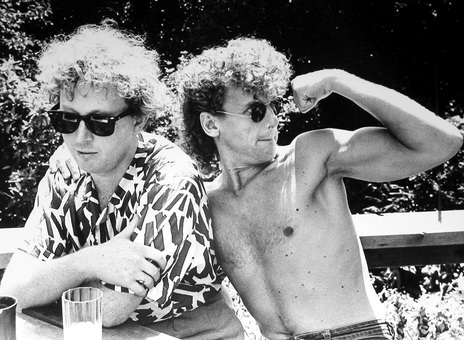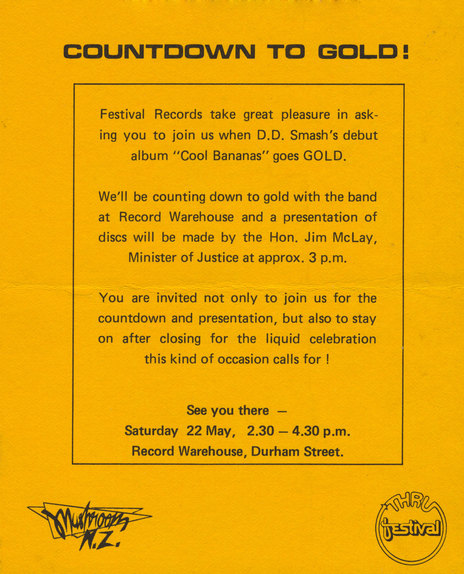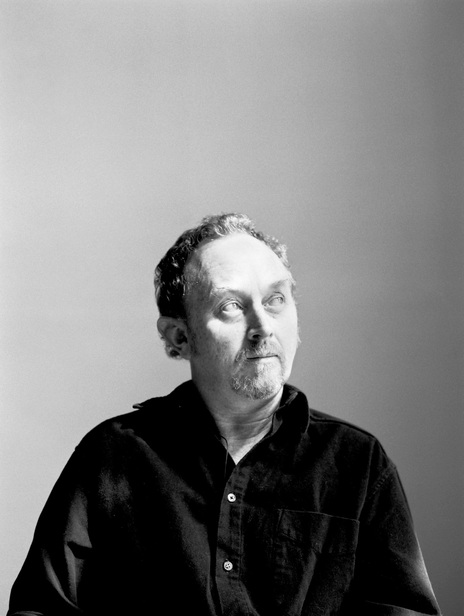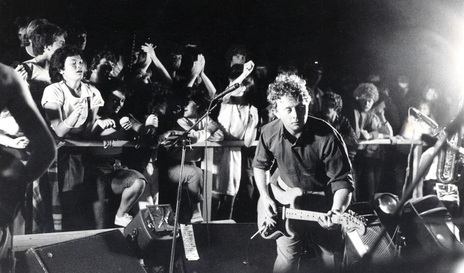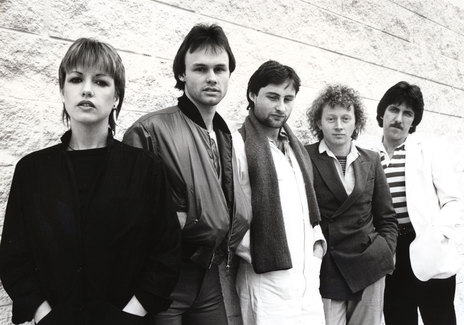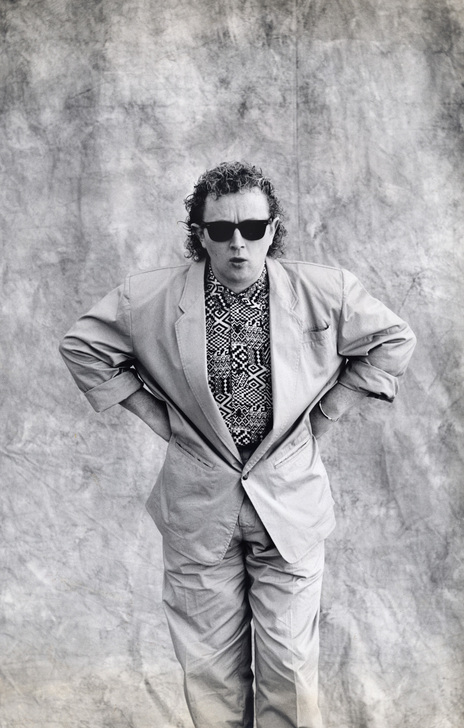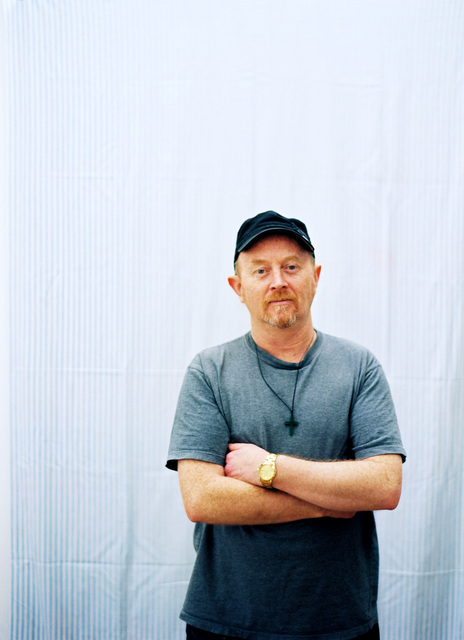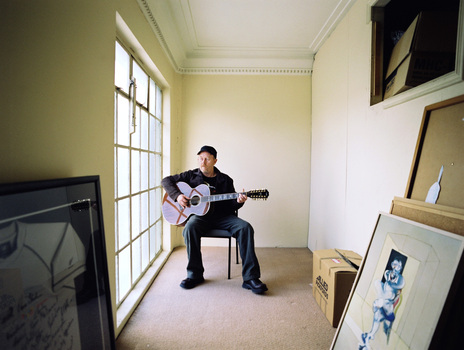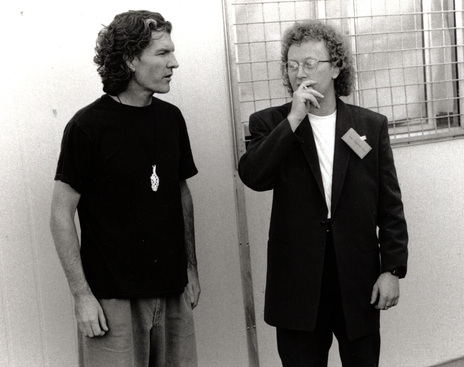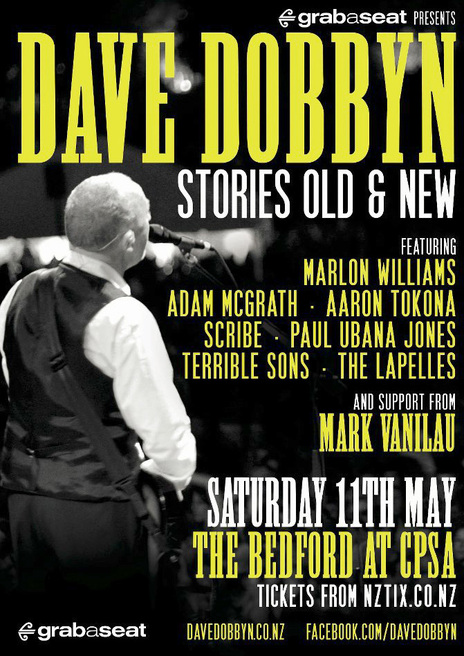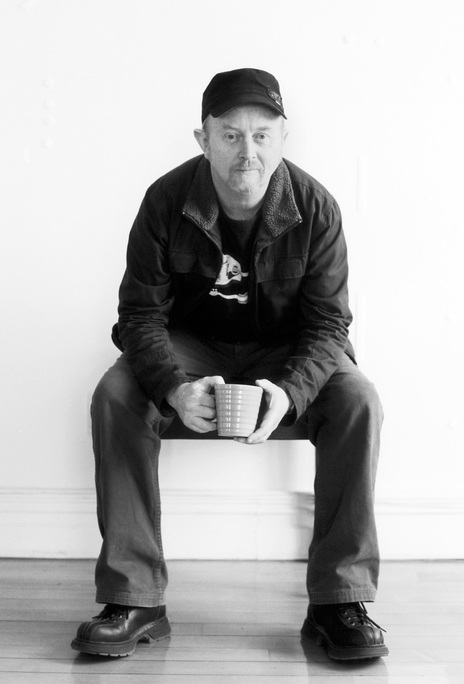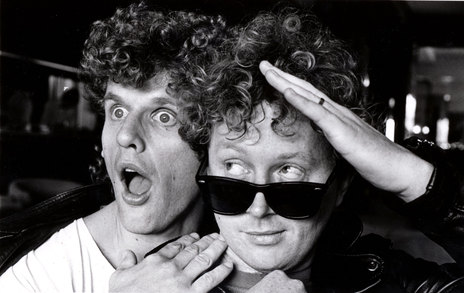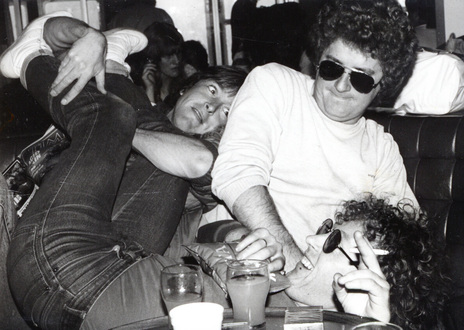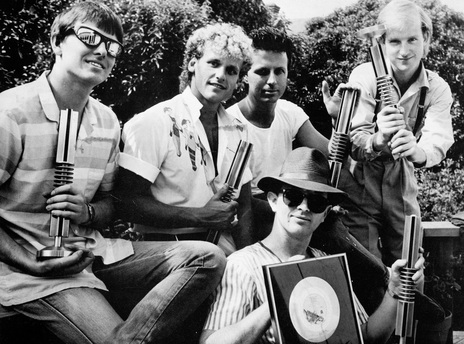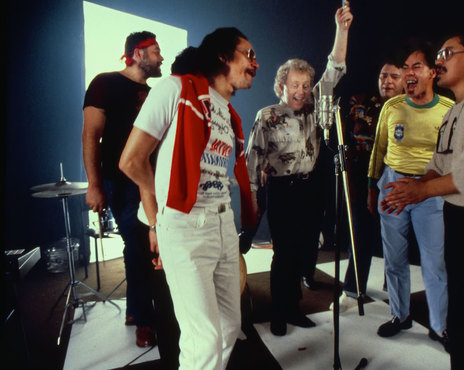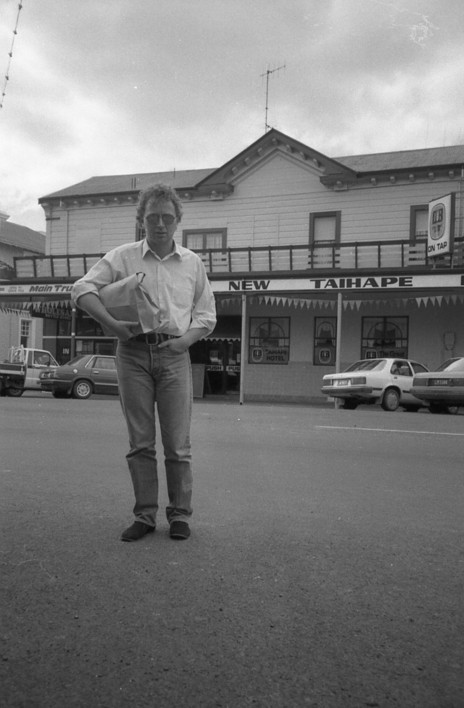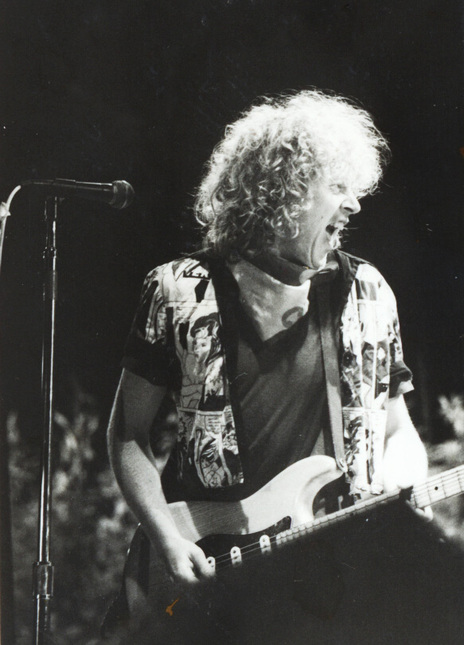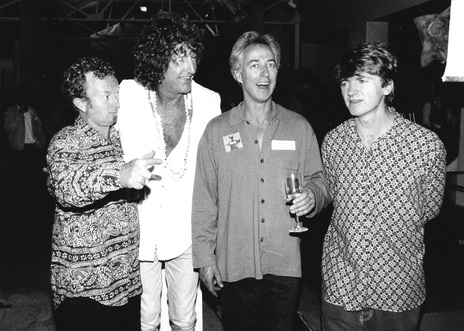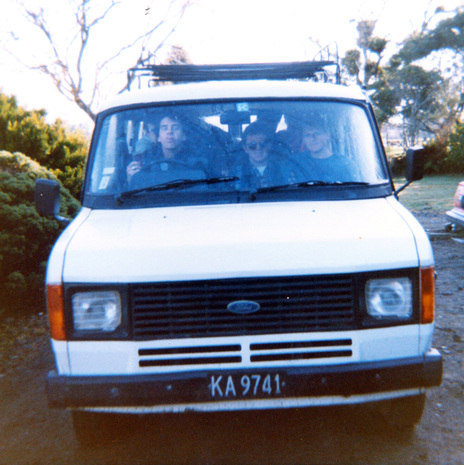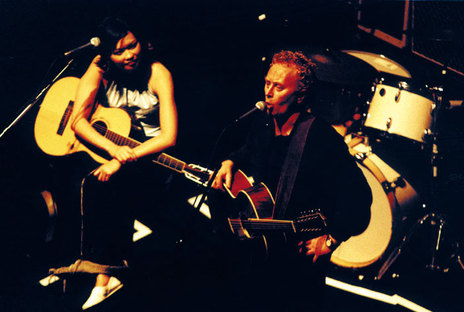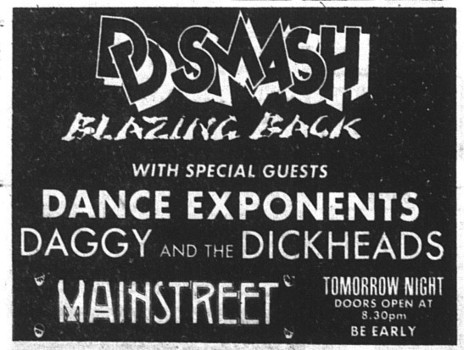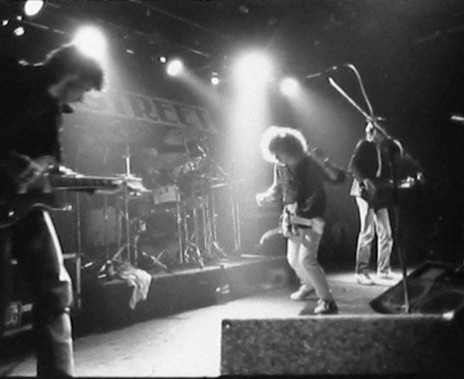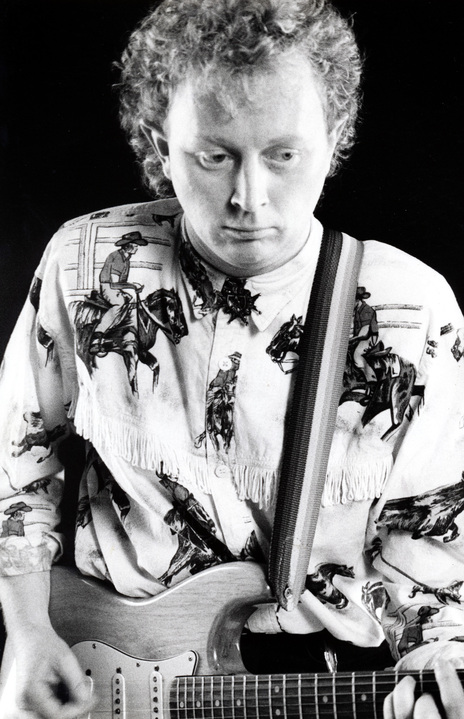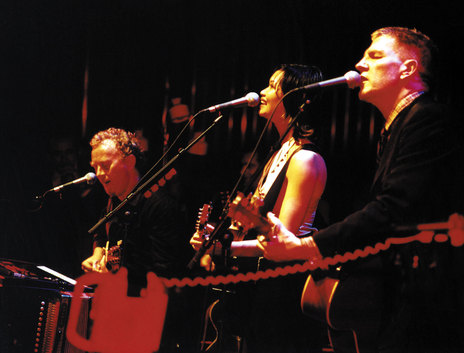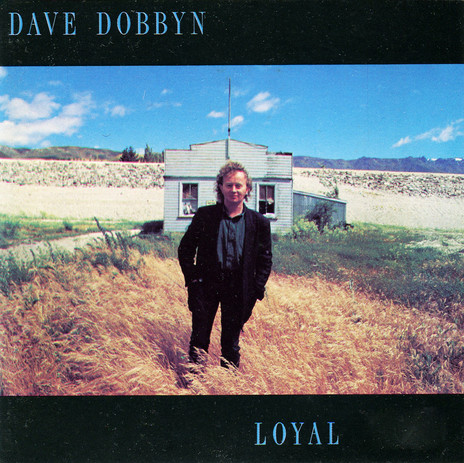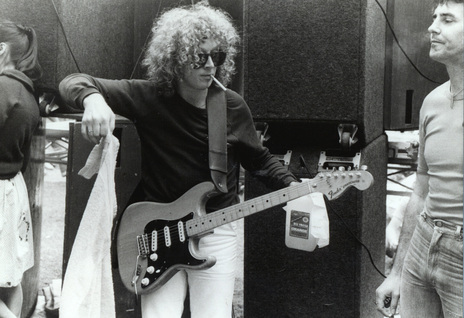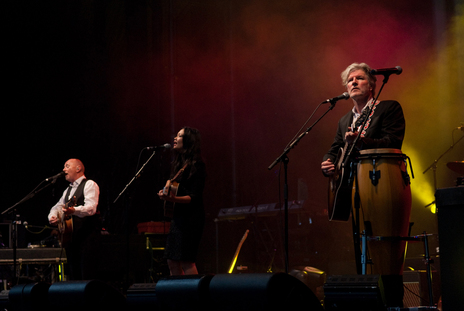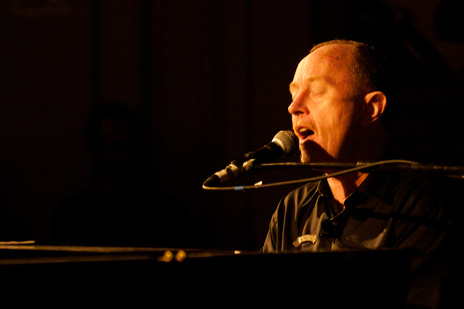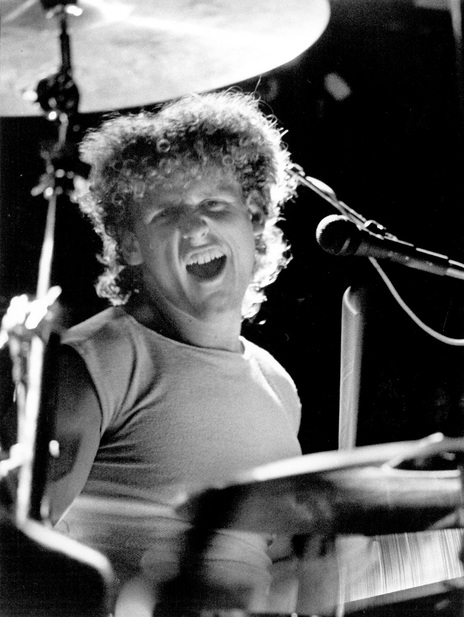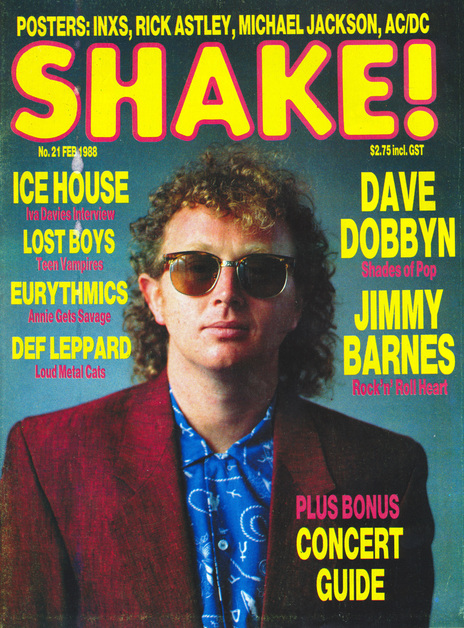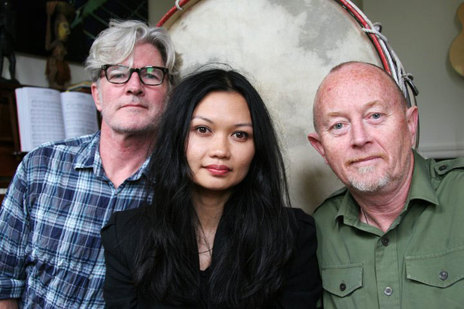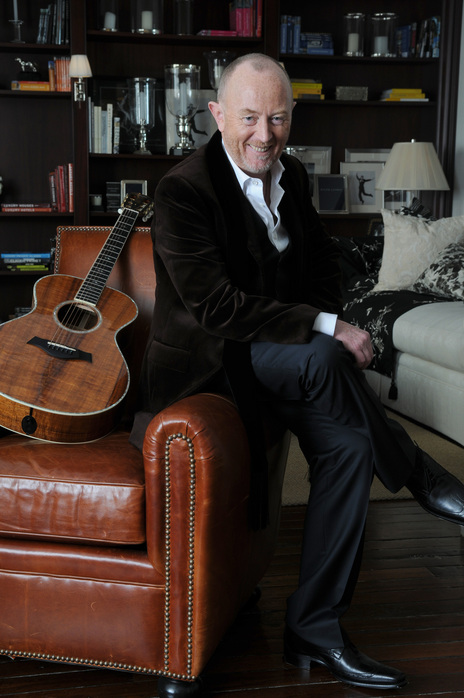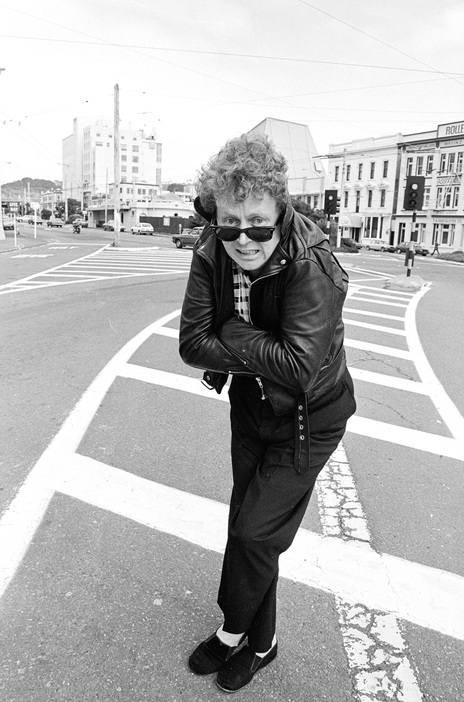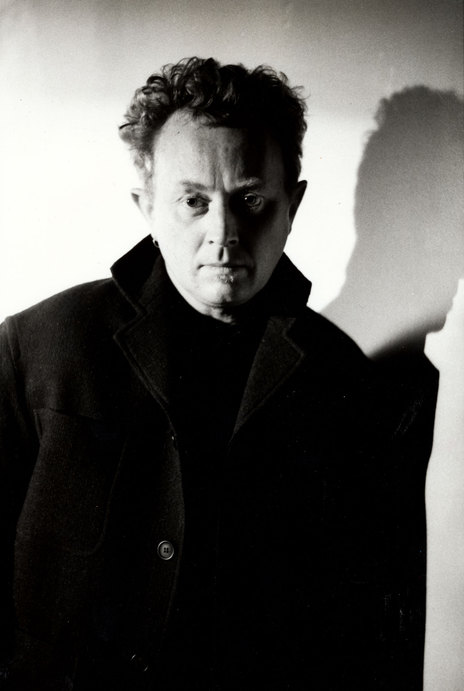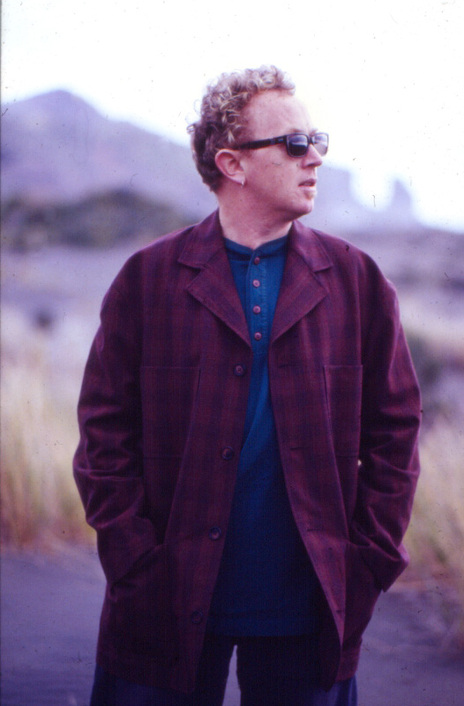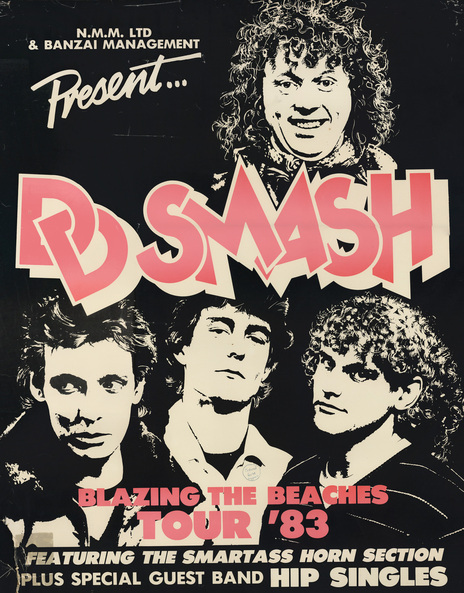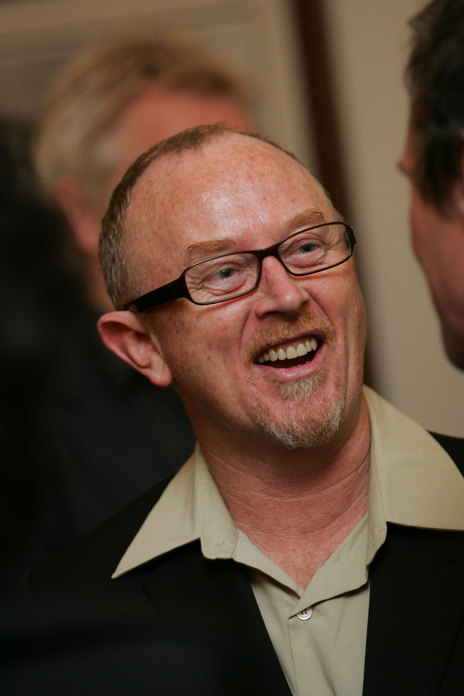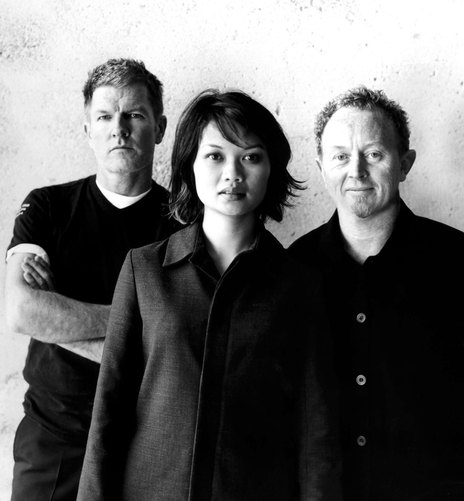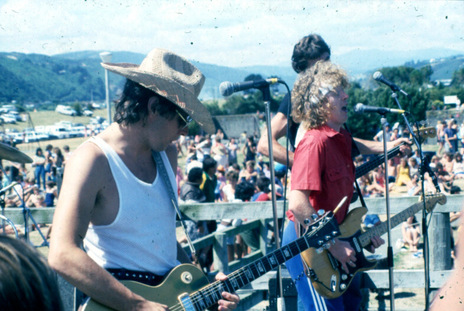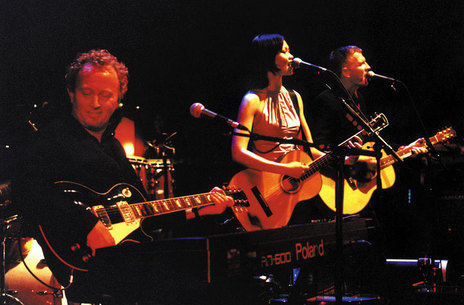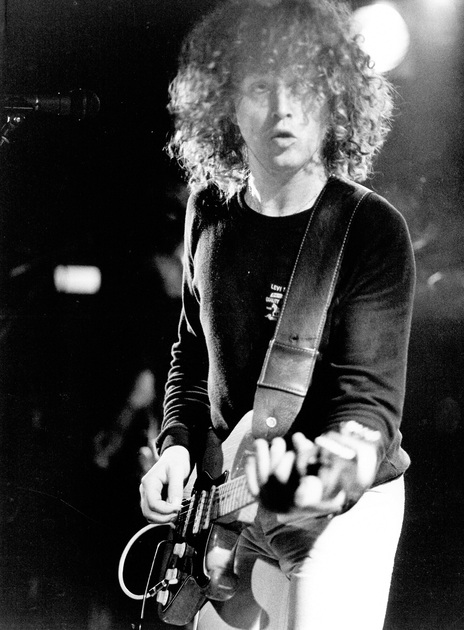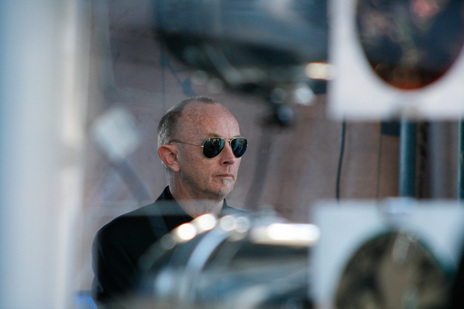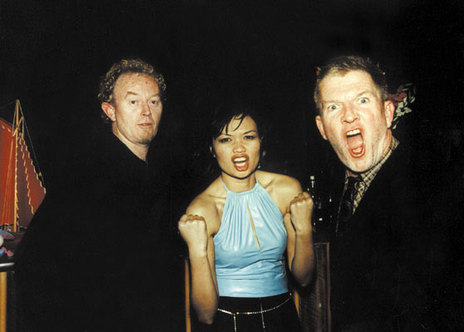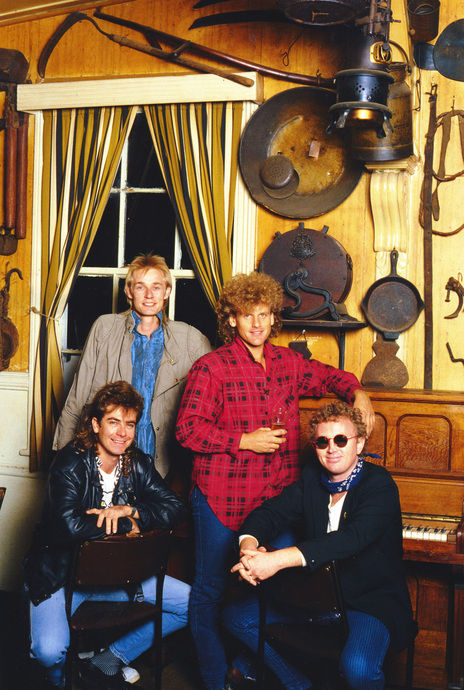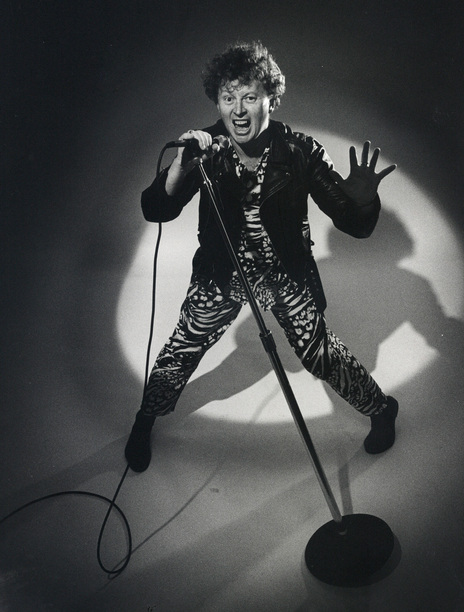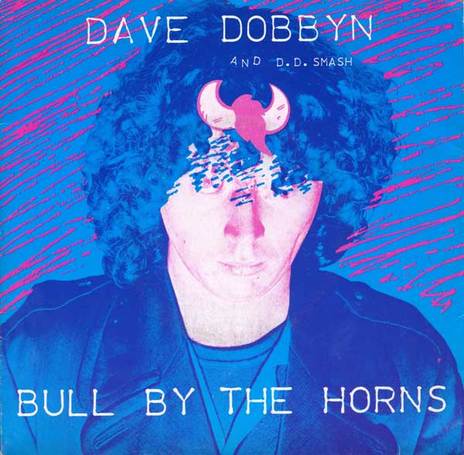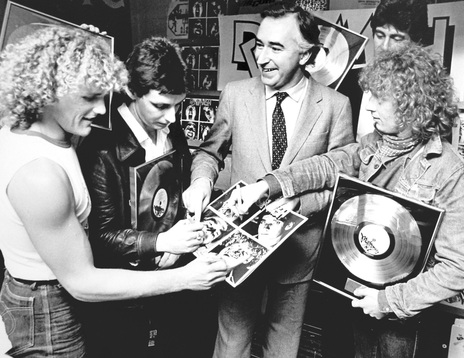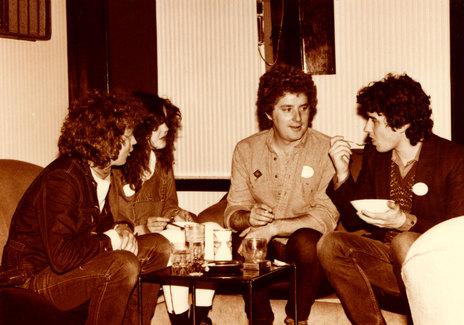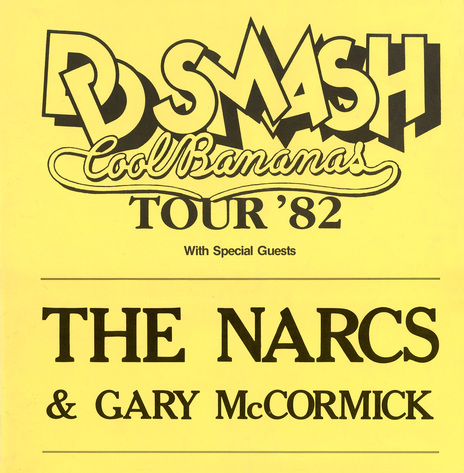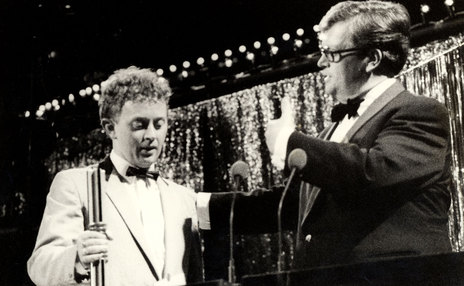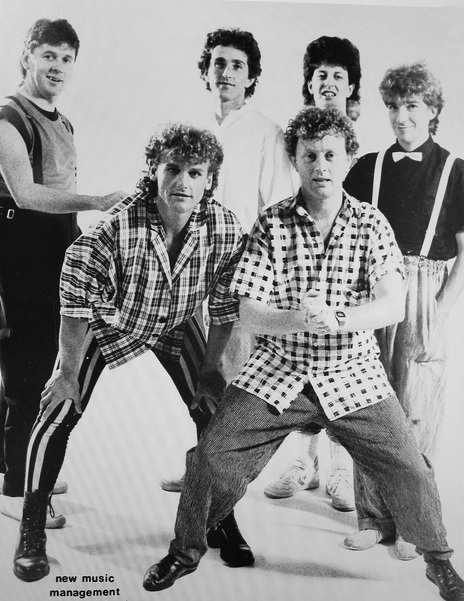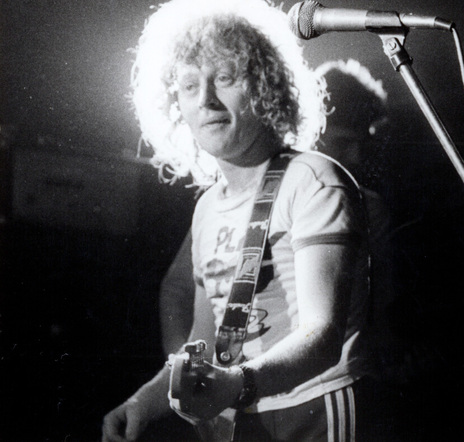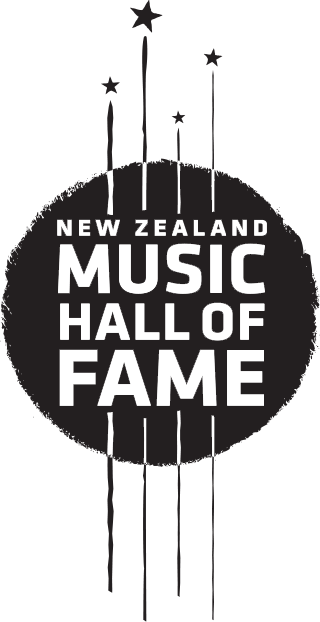And yet Dave Dobbyn started out as, and in many ways remains, an atypical New Zealander, the classic outsider. Diminutive, shy, freckly and ginger-haired, he was the kid who was the target for school bullies. His guitar and a sense of humour were his only defence against a hostile world.
Through his music – first with Th’ Dudes, then DD Smash and ultimately as a solo artist – he has prevailed.
Through his music – first with Th’ Dudes, then DD Smash and ultimately as a solo artist – he has prevailed.
Born in Auckland in 1957, Dave Dobbyn was raised Catholic in working-class Glen Innes. From 1968 (when he was 11) until he completed his schooling in 1974, he attended Sacred Heart College. Historically, the school has been something of a breeding ground for popular musicians. In between canings and religious indoctrination, creative-minded students such as future Split Enz members Tim Finn and Neil Finn and Mike and Geoff Chunn, received encouragement from a lively music and drama department, and gave some of their earliest public performances.
Dobbyn was too shy to take advantage of any performing opportunities Sacred Heart might have offered, but he made the acquaintance of fellow students Peter Urlich and Ian Morris, with whom he bonded over a preference for rock music over sport, and an absurdist sense of humour.
After graduating from school the trio formed Th’ Dudes, whose story is told in detail elsewhere on this site.
Though Urlich was the frontman and Morris the musical authority, Dobbyn soon emerged as Th’ Dudes true star. The first single was ‘Be Mine Tonight’, a Dobbyn-Morris co-write for which Dobbyn sang lead. It was a hit, and remains the song for which Th’ Dudes are best remembered. It is one of Dobbyn’s most requested tunes to this day.
When Th’ Dudes split in 1980 it seemed obvious that Dobbyn would remain in the spotlight, though he wasn’t yet confident enough to take on a solo career. Instead he formed a new band. Briefly known as Dave Dobbyn’s Divers, the new Dobbyn-fronted group soon became DD Smash.
A hard-rocking two-guitars-bass-and-drums combo, DD Smash fast established themselves as favourites on the pub circuit. Dobbyn’s burgeoning talent as a songwriter was evident in crowd-pleasing songs like ‘Devil You Know’ (captured on the hit 1982 album Cool Bananas) and ‘Guilty’, which appeared for the first time on the live Deep in The Heart Of Taxes and showed the start of his skill at balladry.
The addition of a horn section enabled him to write the brassy ‘Outlook For Thursday’, a song that had particular resonance in the New Zealand heartland. If ‘Be Mine Tonight’ had amplified a certain New Zealand stereotype – the male drinker, the smoker, out for a good time – ‘Outlook For Thursday’ showed Dobbyn refining his knack for turning the New Zealand vernacular into catchy hooks, by using the familiar refrains of the national weather report to give a forecast of his romantic prospects. It gave DD Smash a New Zealand Top 10 hit in 1983.
By now the band were spending an increasing amount of time in Australia, in an attempt to crack the Aussie market. By the time of next album, 1984’s The Optimist, they were Sydney-based. They had also stripped down to a duo of Dobbyn and drummer Peter ‘Rooda’ Warren, with session players filling out the parts.
The soul-inflected ‘Magic (What She Do)’ gave DD Smash another New Zealand Top 10 hit. And then there was ‘Whaling’, a Dobbyn song in the tradition of great New Zealand songs with a nautical theme (think ‘Six Months In A Leaky Boat’ and ‘Gutter Black’), though Dobbyn’s maritime metaphors barely conceal a sorry confession of rock and roll excess.
DD Smash returned in late 1984 to headline a huge free end-of-year concert in Auckland’s Aotea Square. The event has become enshrined in history as the Queen Street Riot and is covered in detail elsewhere on this site.
To cut a long story short, the concert deteriorated into a violent confrontation between audience members and police and Dobbyn was charged with inciting a riot. Though ultimately acquitted, the unpleasantness of the whole experience gave him ample reason to spend the greater part of the next decade offshore.
This post-riot period also saw the final disintegration of DD Smash, and when Dobbyn re-emerged in 1986 – as the composer and performer of the soundtrack for Footrot Flats, New Zealand’s first feature-length animated cartoon – it was as a solo artist.
An even bigger hit was ‘SLICE OF HEAVEN’, used in the film’s trailer.
More than anything so far, the soundtrack placed him in the mainstream of New Zealand culture. Songs like the soppy-but-irresistible ‘You Oughta Be In Love’ became as imprinted in the New Zealand consciousness as the movie’s cartoon canine hero. An even bigger hit was the song used in the film’s promotional trailer, ‘Slice Of Heaven’. Crossing a pub-rocking riff with the warm Pacifican harmonies of the group Herbs, the song felt instantly friendly and familiar, and became another Dobbyn staple. And it proved to be as popular with the Aussies as it did with New Zealanders, selling 100,000 copies and settling at No.1 on the Australian charts, where it remained for a month.
Though Dobbyn was now a mainstream star, a tour of provincial pubs in 1986 – from Dargaville to Invercargill – was still essentially dirty rock and roll. The DD Smash monicker had gone, though the new name, Dave Dobbyn and The Stone People, suggested Dobbyn was still partially hiding behind the guise of a band. And though he was now a highly successful headliner, nervousness would frequently cause him to vomit before a show, while alcohol had become a necessary crutch to get through a gig.
Loyal, Dobbyn’s first full album as a solo artist didn’t arrive until early 1988. Though the production tended towards the sterile, with none of the grit of early DD Smash, it launched yet another Dobbyn anthem in ‘Loyal’. Over time the song would be become a favourite at ceremonies of all kinds. It even survived being adopted as the theme song for the Team New Zealand in their unsuccessful 2002 bid for the America’s Cup yachting trophy.
Despite its success in New Zealand, ‘Loyal’ failed to repeat the trans-Tasman success of ‘Slice Of Heaven’. What followed was the quietest spell of Dobbyn’s career. Though Dobbyn kept busy, producing two solo albums by Grant (GW) McLennan of celebrated Australian band The Go-Betweens, it would be five years before he released a new album of his own.
In the meantime his fellow Sacred Heart alumnus Neil Finn had found massive international success with his new group Crowded House, whose USA hit ‘Don’t Dream It’s Over’ had been produced by American hitmaker Mitchell Froom. In 1992 Dobbyn was dispatched to Los Angeles by Warner Music to work with Froom, in the hope that some of the Froom magic would rub off. With Elvis Costello’s rhythm section on board, it felt like a winning formula.
But the Dobbyn that arrived in LA was as far from hit-making mode as he had ever been. He brought with him a dark set of songs, which seemed to match the mood of the city, which was in the midst of the so-called "Rodney King riots" that had followed the acquittal of police who had been filmed brutally beating a black resident. Dobbyn, who knew a thing or two about riots, was drinking heavily.
Released in early 1993, on the Trafalgar label (via Warner Music), Lament For The Numb was not the hit-fest Warners had hoped for. With an instrumental palette more typical of current alt-rock, songs like ‘Buried In The Backyard’, ‘Maybe The Rain’, ‘The Expert’ and ‘Don’t Hold Your Breath’ present a jaded view of humanity, and in ‘Falling Off A Log’ Dobbyn’s singing sounds certifiably insane. Yet traces of beauty could still be found in the meditative ‘Belltower’, while ‘Belle Of The Ball’ – the album’s musical showpiece – went on to win the APRA Silver Scroll Award as the year’s best New Zealand song. (Read: Dave Dobbyn on Lament for the Numb.)
Lament showed Dobbyn had far from exhausted his creative juices, but it was not a commercial success, and following a tour of Australia where the record was met with indifference, Dobbyn returned to Auckland, with his wife Anneliesje and one-year-old daughter Grace.
at Bethells Beach on Auckland’s West Coast he began composing the songs for ‘Twist’.
After a decade abroad, he saw his homeland with new eyes. “Everything looked different and it looked beautiful and the horizon was much broader,” he told Russell Brown in 1994, shortly after his homecoming. He was marvelling at the landscape, but he might have been describing his personal and artistic outlook too.
During stays at Bethells Beach on Auckland’s West Coast he began composing the songs that would make up his next album, Twist. The songs carried a strong sense of place, with images of black dunes, driftwood and “blood red bloom – pohutakawa”. Where Lament had been dark, these new songs were filled with light.
Twist was recorded in Auckland by American engineer Tchad Blake, who had worked on Lament, with The Mutton Birds' rhythm section of Alan Gregg and Ross Burge, and Neil Finn in the production seat.
The reconnection with New Zealand continued through Dobbyn’s self-produced 1998 album The Islander. Though it opened with ‘Waiting’ – his brightest pop tune since ‘Slice Of Heaven’ – the centrepiece was unquestionably ‘Beside You’, a beautiful ballad of remorse and reconciliation, for which he won a further Silver Scroll in 1998.
But if The Islander’s underlying theme was of a person making peace with himself, his partner, his country, his roots – it came with a hint that Dobbyn’s journey wasn’t over. Complete with gospel piano, ‘Hallelujah Song’ is a kind of parable, in which a sniper attempts to shoot the Pope and triggers off a miracle. While it looks back to the Catholic values with which Dobbyn grew up, it also foreshadowed a significant event that was soon to occur: he became a born-again Christian. Rumours of his conversion began circulating after he returned from a trip to New York City in late 1998. But it was not until the following year when, in an interview with Greg Dixon to promote Overnight Success (an ironically-titled greatest hits collection), he announced: “I met Jesus Christ about a year ago. Now I just look around and everything I look at, God is responsible for.”
It was evident he had not lost his sense of humour, though, as he compared himself to Ned Flanders, the pious neighbour from The Simpsons, and remarked that telling people you were a Christian was “like admitting you’re a cross dresser.”
Of perhaps equal significance was another change in Dobbyn’s lifestyle: he had given up drinking. Both events were reflected in the upbeat tone of his 2000 album, the aptly-titled Hopetown.
Being a teetotalling Christian is not just the antithesis of the rock and roll stereotype. It is also a long way from the mainstream New Zealand that had, for more than two decades now, embraced Dobbyn’s music as its soundtrack. And yet far from alienating his audience, he continued to attract adoring crowds, whether in downtown Auckland or rural Kihikihi.
And the anthems kept coming. Possibly the most anthemic of all was the one that opened 2005’s Available Light. ‘Welcome Home’ was inspired by several incidents that had drawn attention to racial prejudice in New Zealand society. One was the case of Ahmed Zaoui, an asylum seeker from Algeria who was imprisoned as a suspected terrorist.
“To treat anyone who comes to these shores as an alien nuisance is exactly the wrong way to go forward in the 21st century,” he told John Russell. “The man was imprisoned for two years with no charge and no trial and that’s not supposed to happen in a democracy. I can’t live with that, that’s why I back the guy.”
‘Welcome Home’ has a resonance that has outlasted the events that inspired it.
After he was granted his release, Zaoui appeared on stage with Dobbyn at the New Zealand Music Awards, joining the singer in an emotional rendition of the song. Yet ‘Welcome Home’ has an ongoing resonance that has outlasted the particular events that inspired it. The image of the “woman with her hands trembling” and the phrase “haere mai” are evergreen, evoking for any New Zealander the pōwhiri, or Māori welcoming ceremony. Alongside ‘Po Atarau’ (or ‘Now Is The Hour’), the great Māori song of farewell, it almost makes a matching pair.
For his next project, the 2008 album Anotherland, Dobbyn went to England, where he worked with dub reggae producers Adrian Sherwood and Skip Macdonald. Though the result had a definite dub flavour, it didn’t really sound like anyone but Dobbyn.
He continues to tour and lend his music to special events. In September 2013 he joined forces with another New Zealand songwriting veteran, Don McGlashan, for a national tour of churches. The venues were chosen for their acoustics rather than their religious significance, however many would claim that hearing Dobbyn in these performances was a spiritual experience. He was also on call to lead a singalong of ‘Loyal’ at Auckland’s Shed 10, should Team New Zealand take the America’s Cup. He is still funny, eccentric, full of brilliant songs, an optimist, an islander, an outsider – and greatly loved.
– Nick Bollinger
--
In 2016 Dobbyn released his first album in eight years, Harmony House. Taking inspiration from Auckland’s eclectic and long closed second-hand store of the same name, the title also alludes to the lyrical themes of domestic and spiritual peace – which Dobbyn found in recent years. Samuel Flynn Scott and Luke Buda of The Phoenix Foundation joined Dobbyn as co-writers, producers and band mates on the record.
“They like all the stuff I like … Lou Reed to David Bowie to Bach. It was a good, easy fit,” Dobbyn told Marty Duda at 13thFloor.co.nz in 2016. “I love the fact that they work quick, you can get an idea down real quick – which is kind of old fashioned.” Additional Phoenix Foundation members joined them in the studio, as well as long term collaborators Ross Burge, Glenn R Campbell and Ryan Prebble.
Harmony House was received well by critics, from NZ Musician’s “a sure-footed return to form”, to NZ Herald’s “well worth the wait”, to Nick Bollinger’s assertion it “refreshes the timeless theme with a casual brilliance”. The title track made the 2016 long list, with the album picking up two nominations at the NZ Music Awards, for Best Male Solo Artist and Best Engineering. Harmony House enjoyed a local and international tour, including shows in Australia, the UK, Dubai and Vietnam.
Dobbyn enjoys the kind of live career that reflects decades of success.
Dobbyn definitely enjoys the kind of live career that reflects decades of success. In the last three years alone, he has supported Bryan Adams (2017), toured his Slice of Heaven: 40 Years of Hits album (2017), and more recently began his post-Covid 2020 Open Up Tour, entertaining big crowds at venues such as the Spark Arena in Auckland and the Whanganui Royal Opera House. In addition, Th’ Dudes’ The Bliss Tour went ahead in November 2020, having been postponed twice earlier in the year due to the Covid-19 pandemic.
The tour was inspired by Th’ Dudes’ 2019 induction into the NZ Music Hall of Fame – an honour they followed up with a special edition vinyl album, Bliss on Wax. Released in May 2020, it included a remastered selection of tracks from their two albums, Right First Time and Where Are The Boys.
In 2017 ‘Welcome Home’ was recorded in te reo Māori, entitled ‘Nau Ma Rā’. The lyrics were translated by the renowned Te Haumihiata Mason, with backing vocals by Māori artists Maimoa.
Dave Dobbyn remains as active and engaged as ever both in the studio and on the touring circuit. As he told Marty Duda on the release of Harmony House, being a musician “gets easier”.
“You get more playful, more musical … you’re always wanting the performance to be better and you’re always wanting the craft and the process to better … I’ve learnt to focus on the music.”
– Updated by Rosie Howells, November 2020
--
In 2020 Dave Dobbyn was named as a Knight Companion of the New Zealand Order of Merit for services to music.
